Within the background where education is increasingly driven by the economies of scale and research funding, we propose an alternative online open and connected framework (OOC) for building global learning communities using mobile social media.
Get Started for FREE
Sign up with Facebook Sign up with X
I don't have a Facebook or a X account
 Your new post is loading... Your new post is loading...
 Your new post is loading... Your new post is loading...

Bruno Winck, Kneaver's comment,
August 4, 2013 5:43 AM
Strange how a history teacher didn't learn from history and keep predicting failures of disruptions.

Alex Grech's curator insight,
August 9, 2013 11:35 AM
My current absorption with Pearltrees started with an exploration of Robin Good's incredible structure. To be studied, admired and shared.

verstelle's curator insight,
March 23, 2013 7:03 AM
Great posting! Good MOOCs will allow you to truly go at your own pace, to stop and start, go off on an exploratory path and return again. This is what true adult learning is and should be. They should not copy but complement or construct new models of learning. MOOCs encourage the ‘look see’ approach to learning We need to look at uptake, not dropout. Dropout is a highly pejorative term that comes from ‘schooling’. The ‘high school dropout’. He’s ‘dropped out of ‘University’. It's this pathological view of education that has got us into this mess in the first place. MOOCs are NOT school, they eschew the lecture hall and are more about learning than teaching. MOOCs, like BOOKs, need to be seen as widely available opportunities, not compulsory attendance schooling. via @fagotissimo 
Frederik Truyen's curator insight,
March 23, 2013 7:42 AM
Interesting read point of view from Donald Clark

Peter B. Sloep's comment,
March 2, 2013 4:10 AM
I am not sure it is the larger number of opportunities to interact that explains the success of larger courses. As long as they use fora without any intelligence for matching people (or filtering out non-matching people), the larger the forum, the more confusing it gets.

PaigeCuffe's curator insight,
March 3, 2013 12:17 PM
The best collection of numbers related to mooc participation I've seen - so far. 'Participation' is a difficult thing to identify and define in the original cMOOC formats, where it is possible to visit without signing in so whilst unique visitor numbers can be extracted for the core site, engagement is difficult/ not possible to ascertain for these mooc formats. It is much clearer in xMOOCs, where sign-in is required and often fixed assignments are presented. In addition, in cMOOCs, and especially in the longer lasting ones (e.g. the 9 month #Change11) the notion of 'participation' isn't based on weekly attendance but on accessing those resources and conversations of interest to that participant. So evaluating retention may be an illusion other than for some xMOOCs. The comments on this blog are worth a careful read, they open discussion on many of the more nuanced points around completion v participation v 'persistence'. The language used to discuss this is not trivial, as some terms shift responsibility for performance between provider and learner. 
Jon Dron's comment,
March 3, 2013 8:15 PM
@Peter - the confusion of threaded forums is largely avoided in bigger MOOCs, where most dialogue is involved in problem-solving so rapid responsiveness trumps complexity. In the early Coursera offerings, median response time in forums was 22 minutes, 24 hours a day, which is not bad! However, there are also other communities that develop in both formal and informal settings, Facebook, Twitter, etc, so there are more diverse opportunities to form communities. xMOOCs are overlaid with cMOOC-like networks. I prefer 'persistence rate' too.
|

Alfredo Corell's curator insight,
July 15, 2013 5:53 AM
A review about the uses of scoop.it in the classroom. 
Ra's curator insight,
July 21, 2013 9:47 PM
Curating as a group, students identify their own input with their initials. Allows for a synthesis of ideas. 
GwynethJones's curator insight,
August 13, 2013 2:05 PM
SO true! This is my FAV new Curation tool....well, add Scoopit to MentorMob & you have a dynamic duo!

Nuno Ricardo Oliveira's curator insight,
May 31, 2013 10:39 AM
Call for papers - 9th International Conference on Networked Learning

verstelle's curator insight,
May 1, 2013 4:34 AM
Conclusion of the article: "Faculty concerns about the spread of online courses may be on the rise. Just two weeks ago, faculty members at Amherst College voted against participating in edX, the nonprofit collaboration founded by Harvard and the Massachusetts Institute of Technology, citing concerns about costs and about how “massive open online courses” would affect a residential campus devoted to small discussion classes."

Peter B. Sloep's curator insight,
March 26, 2013 6:09 AM
Networked learning by definition uses all kinds of online tools to support learning. Those tools are often classified as web 2.0 or social web tools, although tools that facilitate information seeking and management still play an important role. Google+ is one of the social tools, that facilitates synchronous communication like many others, but is particularly interesting for its seamless integration with the rest of the Google toolbox. The article explains how to set it up - don't forget to read the comments! - and use it.(@pbsloep)

Steven Verjans's comment,
March 22, 2013 4:19 AM
Check out Stephen Downes collection of critical comments: http://www.downes.ca/cgi-bin/page.cgi?post=60059

verstelle's curator insight,
March 23, 2013 4:18 AM
Many of the inspiring ideas of Sugata Mitra are presented often and therefore well known; this one was new for me: Steve: What is your vision for education in the next 10 years? What do you think needs to be done next? Sugata: We need to rethink the curriculum, rethink assessment and rethink certification in an age where 'knowing' may be obsolete. Homo Sapiens will transition to Homo Deus in the next 50 years. Our preoccupation will be with meaning and creation. Knowing will not be our main interest - creating will. In order to create we will need to know things. When we need to know something we will have the means and the capacity to do so in minutes. A page of erudite text may take an educated person an hour to understand. A century ago it would have taken a month. A thousand years ago, a year or more. We could extrapolate to a time when it will take us a minute to understand. A generation or two later, one second. The human brain is evolving faster than anything has, ever before. |




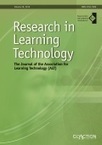

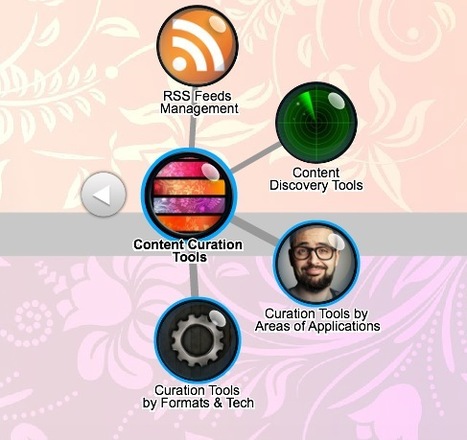


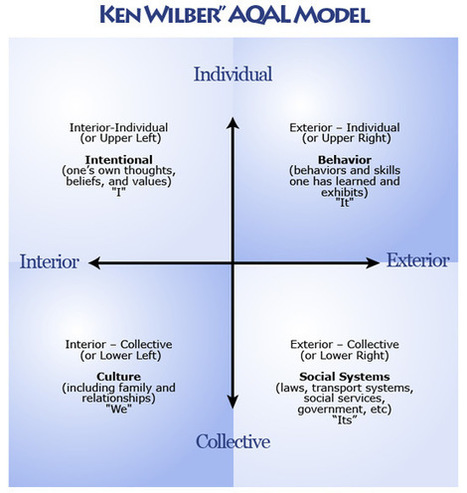

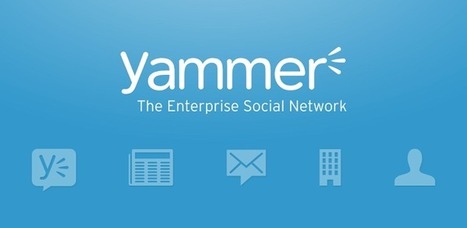








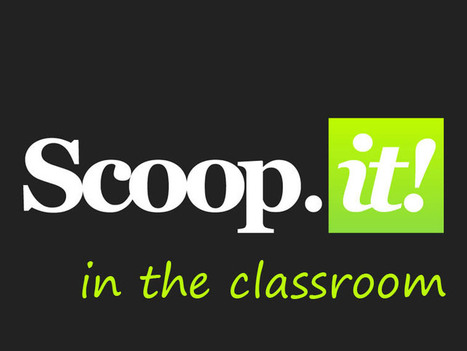




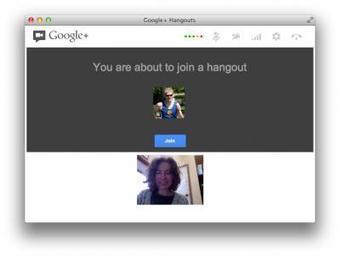
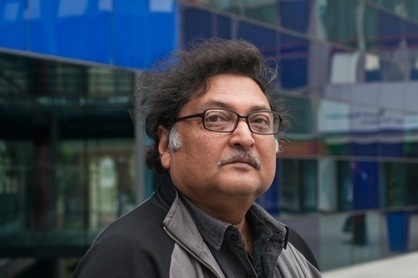
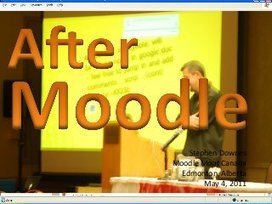





A paper by an international group of researchers/teachers who set up a global learning community for themselves as teachers, but also involving their students. A nice example of blurring boundaries.